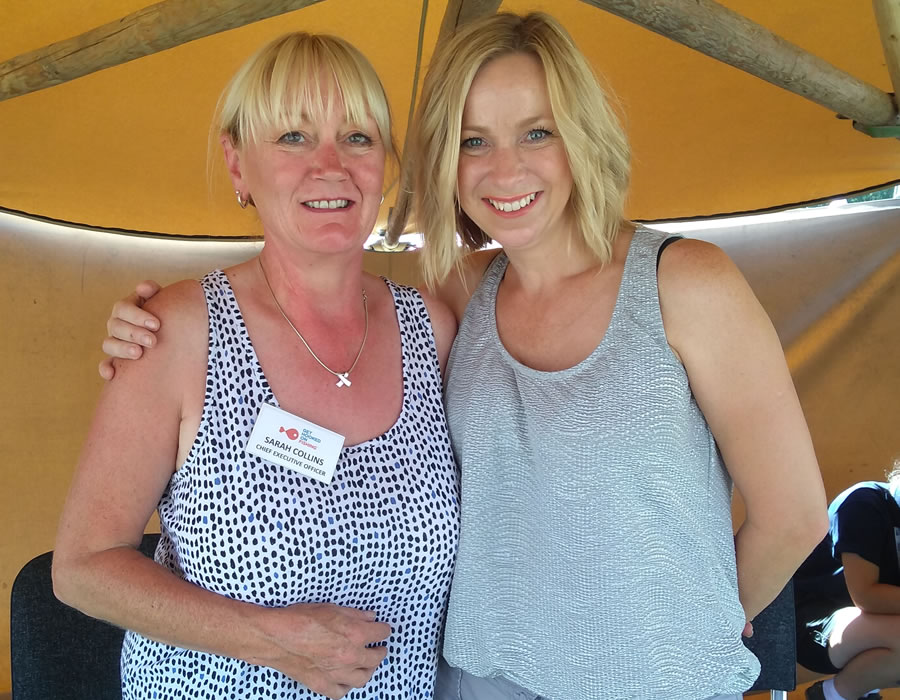
Get Fishing News
Are boys or girls better at fishing? Is it expensive? What’s it like to catch your first fish?
At this year’s BBC Countryfile Live, BBC Radio Gloucestershire’s Faye Hatcher asked Sarah Collins, CEO of national angling charity Get Hooked on Fishing about the wonders of angling… In amongst a busy weekend where over 1,000 people had a go at fishing in the beautiful lake at Blenheim Palace, Faye and Sarah found time to record a fascinating explanation of how angling fits in with modern life and how easy it is to get fishing:
Faye Hatcher: First off, is fishing still a male dominated sport?
Sarah Collins: Yes, very much so. Not just male dominated, but also the more mature male in general when you look at the statistics. What we’re trying to do as a charity, working with the Angling Trust and the Environment Agency, is to get more families to have a go at fishing. I’ve got a bit of a personal ambition to get more women and girls fishing. We use very simple and basic methods and try to promote our work in places like Mumsnet – I have a theory that it’s mums that organise things within a family and get everything together. So, we’re targeting mums and showing them how going out and fishing together can be a great thing to do – going out to easily accessible places and getting involved. We promote this through our family fishing campaign venues that have got cafés, toilets, great parking, places where you can go for an hour or spend all day there fishing.
We’ve got a project in Northolt, West London, for example, that’s in the middle of a public park. It’s got six purpose-built lakes – there’s a café, an adventure playground, all those things to keep every member of the family interested and occupied.
FH: You teach girls and boys. Who’s better, girls or boys?
SC: It’s not so much that either’s better than the other. Girls can tend to be more successful as they listen more to what to do. Boys often approach it like “I know what to do – cast it as far as possible”. Girls tend to have a bit more finesse and patience. That’s one of the things we use fishing for – developing patience and also dealing with disappointment when you lose a fish or you don’t catch a fish.

FH: Is it an expensive sport to set up and get going?
SC: As with anything you can go down the expensive route. However, we try to promote fishing as safe, fun and affordable, and it’s something that families can do together. We have recommended kit lists, but for example when we say you need a bait box, this can be any old box or container. Dad’s sandwich box, old margarine tub. In terms of the actual kit, it can be bought cheaply, and it will not take up much space at home.
FH: There’s a great program on TV, “Fishing with Paul Whitehouse and Bob Mortimer”. What a great profile for fishing in the UK. Have you seen it?
SC: Yes, and I think it’s fantastic. It’s not aimed at anglers who want to know more about fishing. But it highlights the health and wellbeing benefits of the sport. They go to some beautiful places, you can see the social element, you see them having a laugh – it’s a fantastic image of angling. And although it’s not families and young people, it’s great exposure.
FH: Why was Get Hooked on Fishing set up?
SC: It was set up in 2000, by a serving police officer who was a fisherman going out on the canals and lakes. He saw a lot of youngsters being antisocial and he tried to encourage them to come along and have a go at fishing, and really to divert them away from potential criminal activity. Those foundations have led us to work right across the UK, from Glasgow in the north, right down to doing some work in Eastbourne on the south coast. What we’re doing is working with youngsters who may be becoming disengaged with school, may need some help with their education, may need a boost in confidence or self-esteem. We not only divert away from criminal activity, we also try to help those who have engaged in criminal activity to not reoffend. We’ve got some amazing case studies of how the opportunities we’ve created have been hugely beneficial to young people.
FH: You hear lots about boxing or martial arts clubs for example working with disadvantaged children, but what is it about fishing that can turn things around and get people on the straight and narrow?
SC: Well, it’s a really interesting thing when you look at the case studies. Quite a lot of the youngsters that we’re working with are quite hard to reach, have faced some enormous challenges in their lives, they’ve often been treated badly by adults and are suspicious of new adults. We always start by taking them fishing – I mean who doesn’t love sitting near some water whether it’s a tiny pond, a big reservoir or a river – it has a great calming influence.
We work with a lot of youngsters who sadly do not go out of their own postcode. They go to school and come home and spend their holiday time messing about in that area, so we try to take them out to other places. What we also do is to get them to do other things while they are out with us. They will come along, and the first job will be to pick up litter – so they can put something back into the community. Or they join the Fisheries Management team to help look after the areas where we fish. It’s some of life’s simple skills. We help to develop their work ethic.
FH: Is every time you see a child catch a fish for the first time magical?
SC: Just talking about it I get goose bumps! It is magical. It’s often loud, shouting, jumping and screaming. It’s fantastic – they’ll always remember that first fish. That’s what we facilitate.
FH: So, it’s much more than just fishing with these life skills being taught. How are you funded, to get the money to put on these initiatives?
SC: That’s a very interesting question. My usual phrase is “funding is always a challenge”. What I have to do is create the budget – the piggy bank is empty, and we have to fill it up to do more of what we want to. We do fundraise, but we also spend a lot of time writing applications for funding – to community funds, to charitable trusts that are fund-giving, we get some funding through the Environment Agency and the Angling Trust for parts of our work. But we’re forever looking for more sponsorship and help with the funding. And also, a big thing for us is fund-saving, which means getting more and more volunteers around the country who want to put something back into angling. This is huge for us.
FH: How do you reach out to these communities?
SC: We come to events such as this, BBC Countryfile Live, and we do a lot of work promoting our projects regionally and locally. We’re exceptionally active on social media – on Facebook, Twitter, Instagram. Those followers are growing, and proportionately so are the donations – which are very important to us. Also, the connections with schools in our areas – we’re seeing a huge number of teachers and staff in schools who are reacting on social media as well. We also use our Family Fishing campaign around the country to get exposure and to engage with local communities.
We’ve got a huge range of events – some are outdoor, like a Family Fishing day, but we also do indoor events too with all sorts of ‘Fishing Funfair” games to develop angling skills away from the bank but which we can do indoors.

FH: We’re trying to inspire people to get outdoors and explore Britain – where in Britain do you love to fish?
SC: Well, because I lived in the centre of Yorkshire for quite a long time, and now live in the Midlands, I’ve not lived near a coast for a long time and am quite “land-bound” so I like going to the coast and fishing from a jetty or a pier, using some of the equipment I’d use on the river in my hometown but doing it on the beach and going for little small fish, travelling light with my rucksack and a small amount of equipment and getting some sea air.
FH: If someone wanted to start fishing and went into a tackle shop, what would you advise them to ask for first?
SC: My first bit of advice would be to avoid ‘telescopic’ style rods, because although they look easy to use and transport they’re not. I’d recommend asking for something simple like a “3-metre whip”, which is a little like a garden cane. Very simple. Then a simple rig – which is the line etc. Then a waggler, which is a kind of float (…there’s a whole new vocabulary in fishing!) then a line with a hook on it. Keep it very simple is what I’d recommend. Use simple baits. Go into the kitchen cupboard – corn and bread are great. That’s better than keeping maggots in mum’s fridge!
Becoming a volunteer or donating to Get Hooked on Fishing couldn’t be easier! Just e-mail hello@ghof.org.uk for more information.
You can find events and info to help you start fishing at Get Fishing – last year the website listed over 800 angling events nationwide. There are fewer events in winter, but you can still find top-tips to start fishing and places to fish, with more events coming online each week.
You might also like
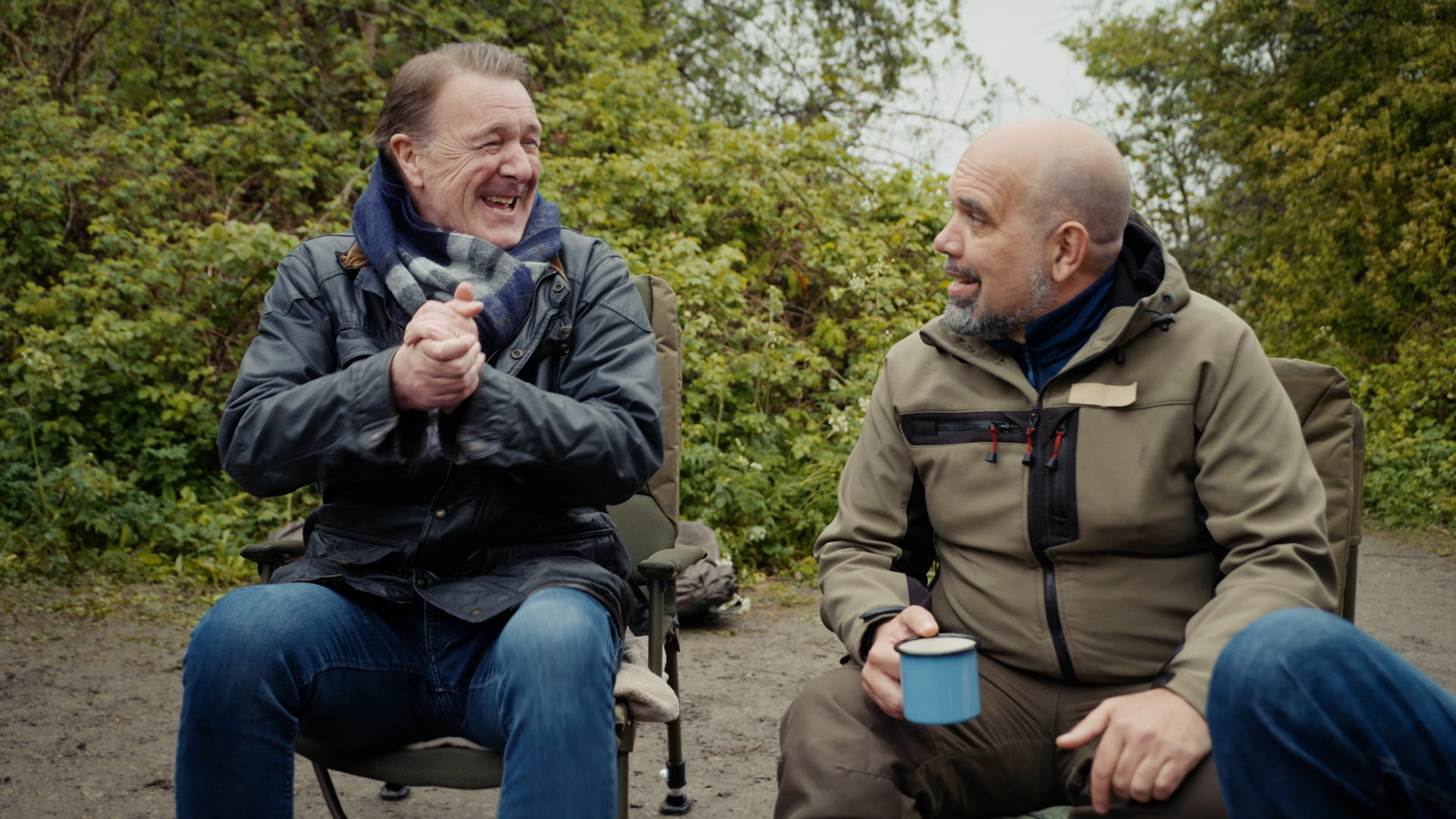
Tuffers bowled over by the benefits of angling and…
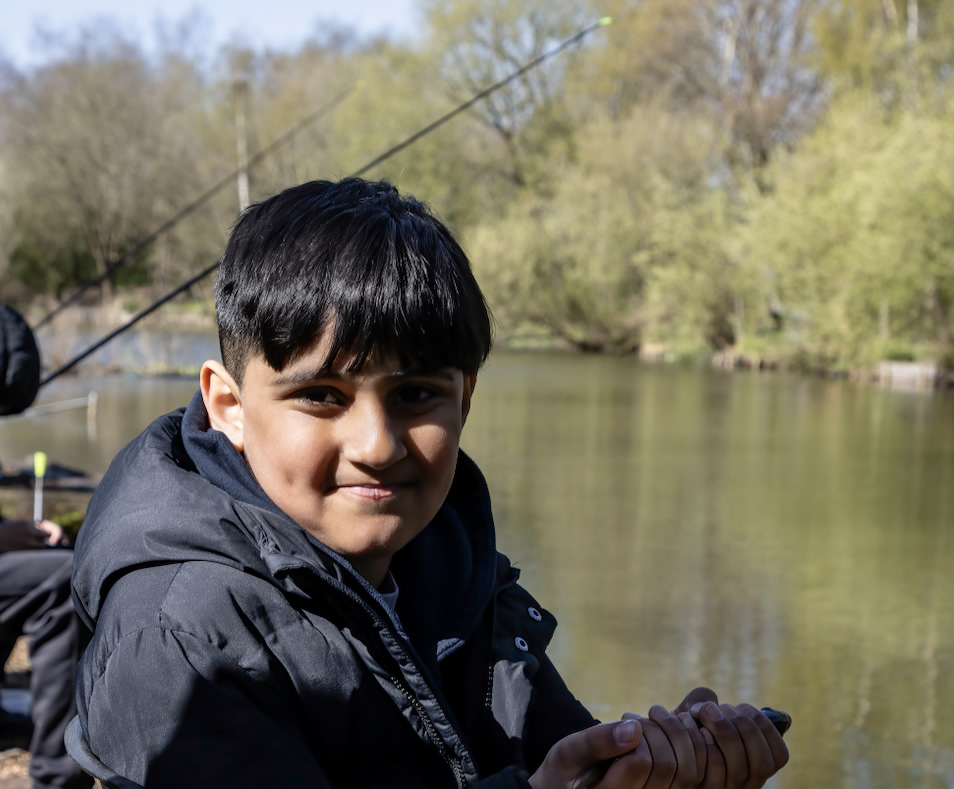
Young nature warriors reel in success with Get Fishing…
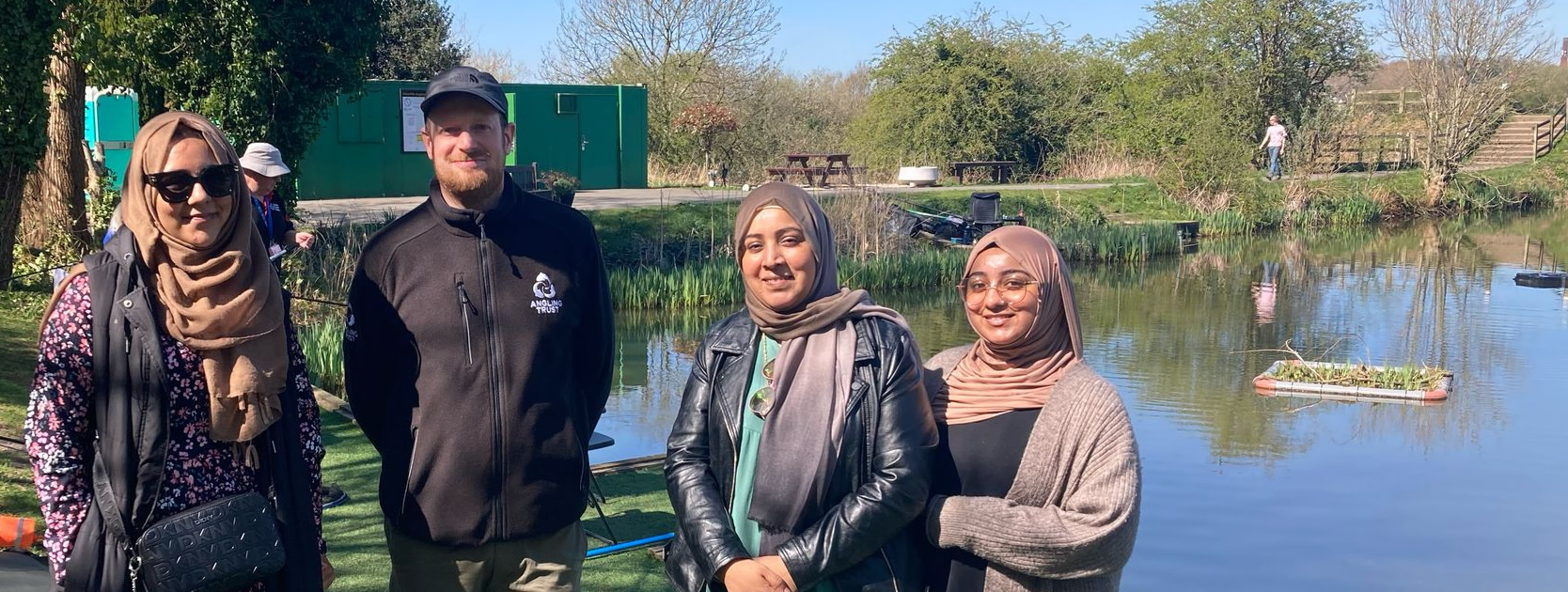
Bury women’s community group gives fishing a go
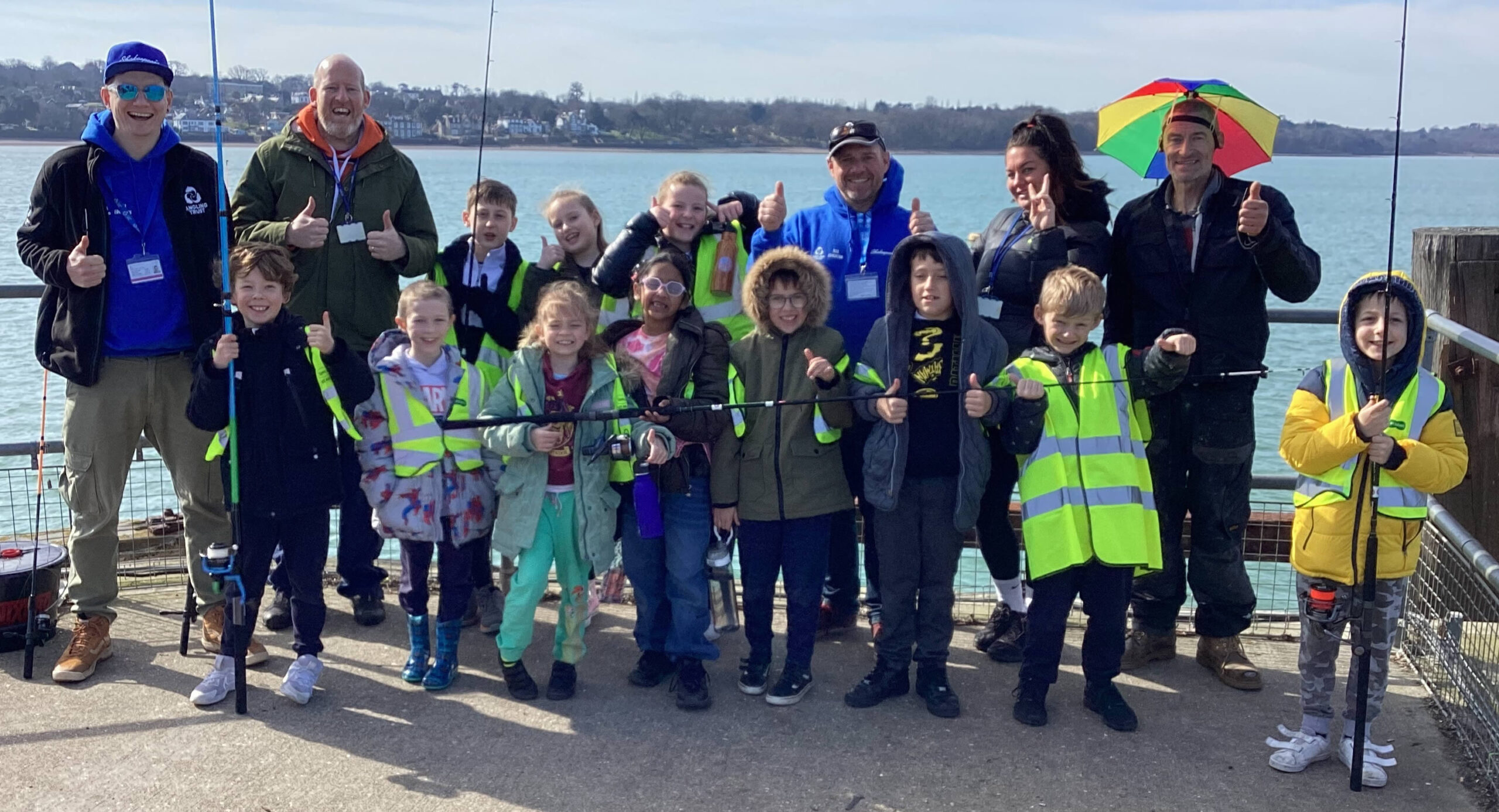
NEW BLOG: Reeling in education – fishing in school…

Angling Trust launches first of its kind water quality…
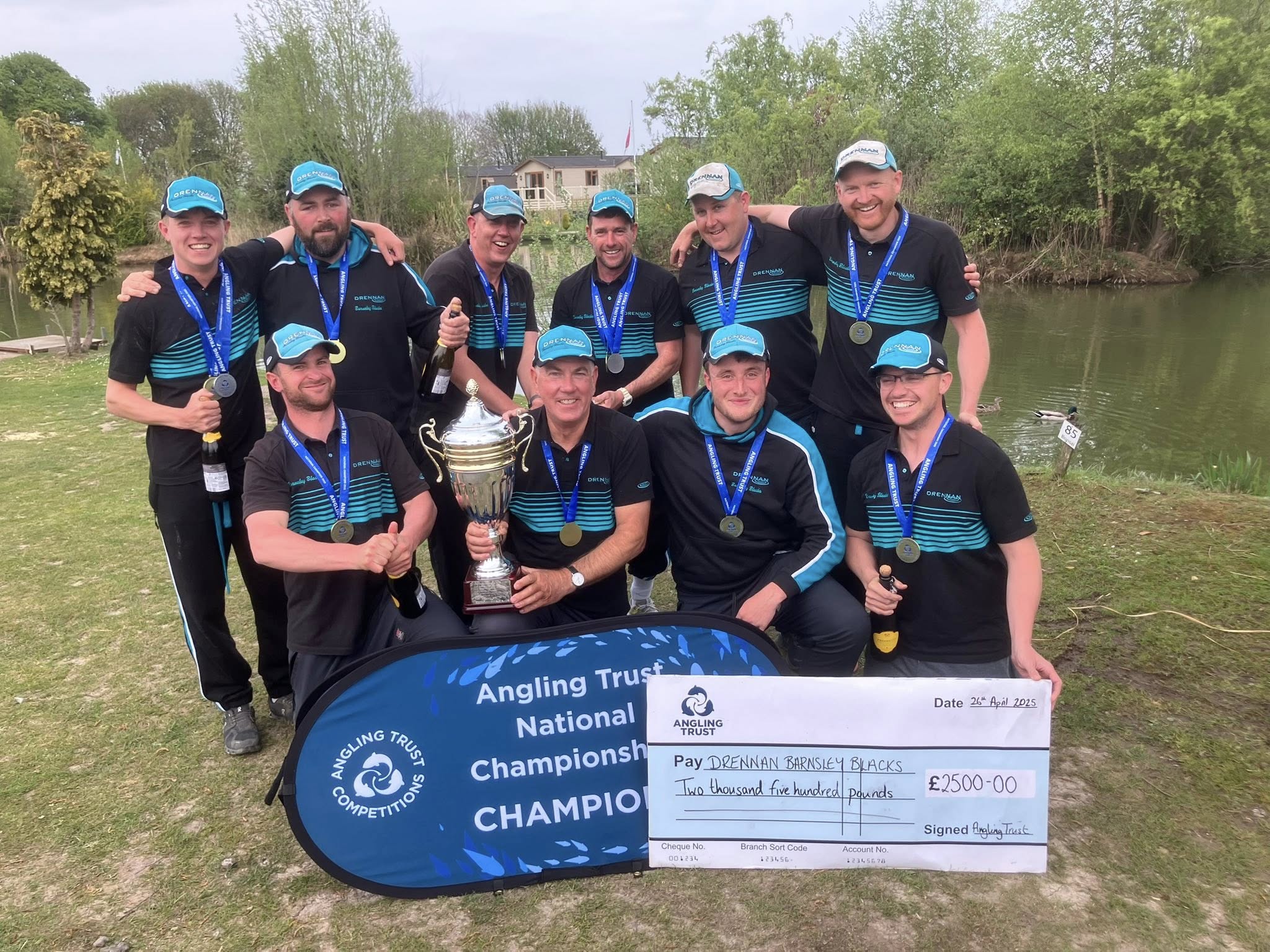
DRENNAN BARNSLEY WIN TEAM COMMERICAL NATIONAL

Penny Gane to step down from Fish Legal after…

Angling Trust’s position on the 2025 Recreational Catch and…
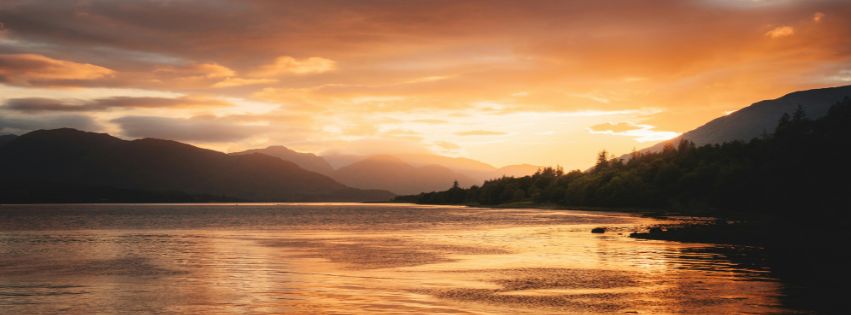
Wild Fishing – The ultimate “where to fish” book…
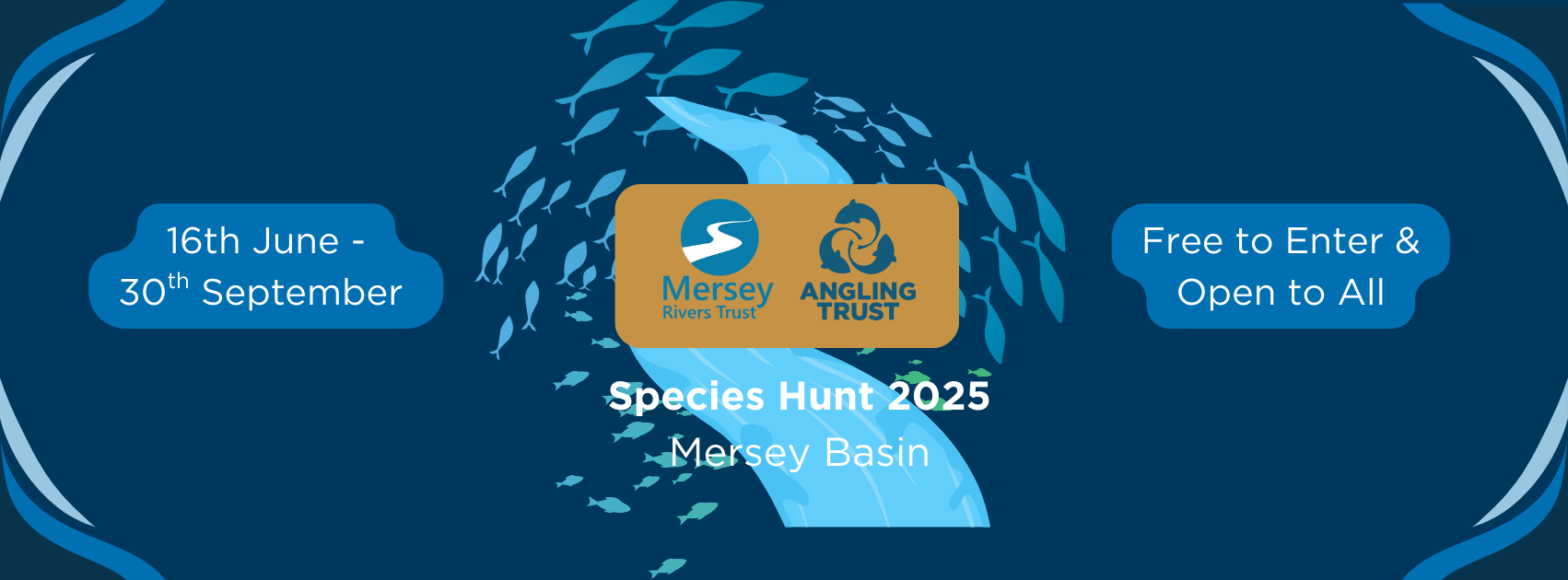
NEW FRESHWATER SPECIES HUNT LAUNCHES
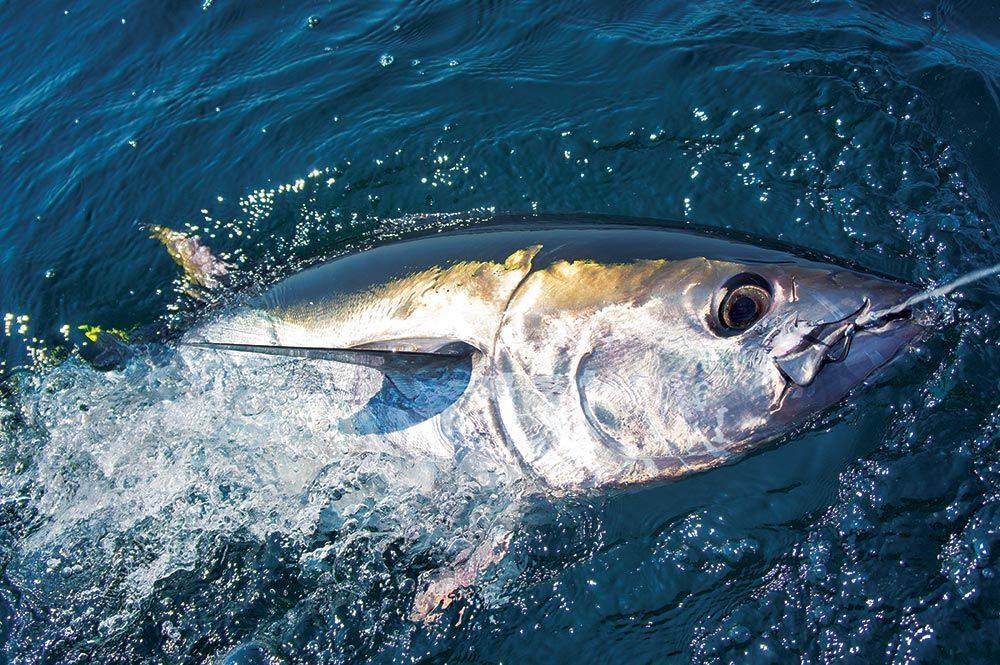
2025: Bluefin Tuna Recreational Fishing Permit Applications Open

Angling Trust and Clubmate: strengthening our partnership

Tuffers bowled over by the benefits of angling and…

Young nature warriors reel in success with Get Fishing…

Bury women’s community group gives fishing a go

NEW BLOG: Reeling in education – fishing in school…

Angling Trust launches first of its kind water quality…

DRENNAN BARNSLEY WIN TEAM COMMERICAL NATIONAL

Penny Gane to step down from Fish Legal after…

Angling Trust’s position on the 2025 Recreational Catch and…

Wild Fishing – The ultimate “where to fish” book…

NEW FRESHWATER SPECIES HUNT LAUNCHES

2025: Bluefin Tuna Recreational Fishing Permit Applications Open

Angling Trust and Clubmate: strengthening our partnership

Tuffers bowled over by the benefits of angling and…

Young nature warriors reel in success with Get Fishing…

Bury women’s community group gives fishing a go

NEW BLOG: Reeling in education – fishing in school…

Angling Trust launches first of its kind water quality…

DRENNAN BARNSLEY WIN TEAM COMMERICAL NATIONAL

Penny Gane to step down from Fish Legal after…

Angling Trust’s position on the 2025 Recreational Catch and…

Wild Fishing – The ultimate “where to fish” book…

NEW FRESHWATER SPECIES HUNT LAUNCHES

2025: Bluefin Tuna Recreational Fishing Permit Applications Open









